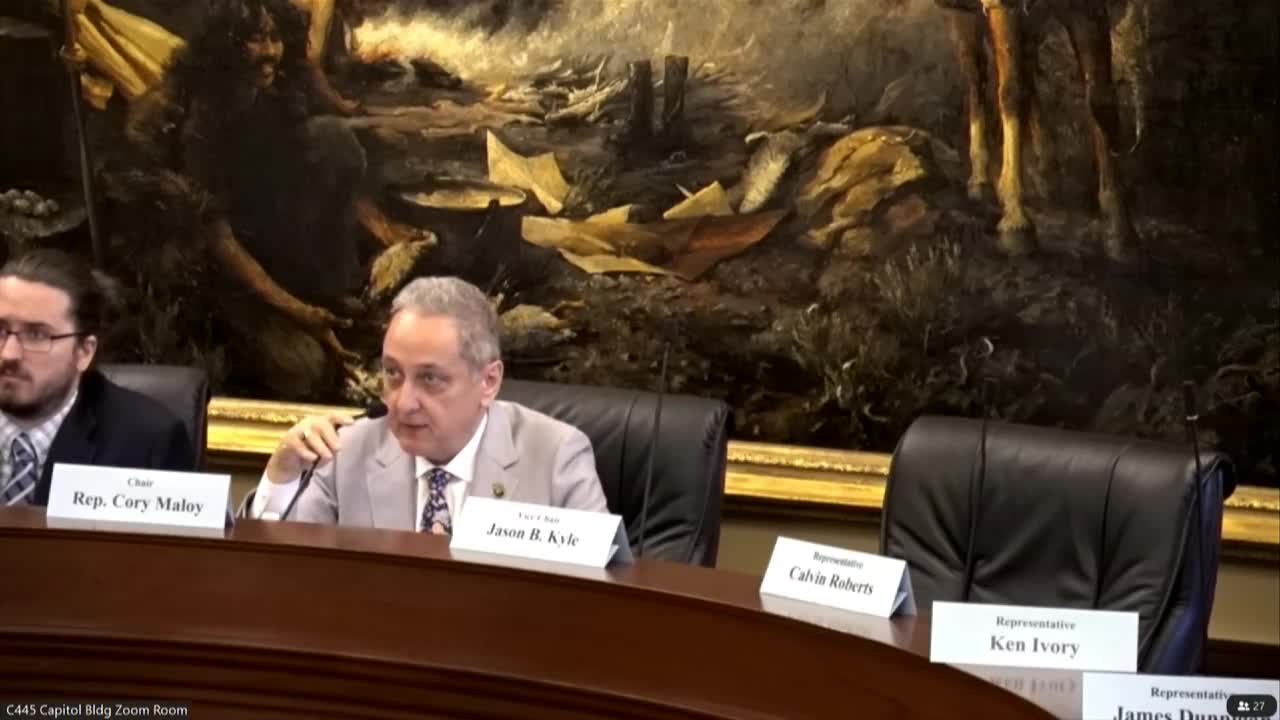Utah panel advances bill to protect child influencers, require trust accounts and takedown rights
Get AI-powered insights, summaries, and transcripts
Subscribe
Summary
A House committee adopted a substitute and passed House Bill 322 to require set-asides for child performers, create a right for former child influencers to remove monetized material at 18, and offer market-based and formula options for compensation.
A House committee on Thursday adopted a substitute to House Bill 322 and passed the measure unanimously to create financial protections and a takedown right for child performers, including children who appear in social‑media content.
Sponsor Representative Owens said the bill responds to cases in which children earned money in family-produced content and later had those funds withdrawn by guardians. “The statute says 15% of the child's earnings need to be put into a trust that's available when the kid reaches adulthood,” Owens said, noting the measure follows laws in other states.
The bill takes two principal approaches. First, it requires that 15% of traditional child-performer earnings be placed into a trust available at majority, and it offers three routes for social‑media and family content: an arm’s‑length negotiated agreement; compensation pegged to a market comparison of represented minors; or a statutory fallback formula. That fallback would split earnings roughly half to the parent/creator and half to the child, with allocation among multiple children tied to their minutes on camera. The statute only triggers when the parent or content creator nets at least $150,000 in annual revenue from content and when the minor’s earnings exceed $20,000 in a year.
Second, HB322 creates a takedown right enabling an individual who was monetized as a minor to request removal of monetized images or videos on social platforms once they turn 18. The bill excludes content governed by a negotiated agreement in which a third‑party representative protects the child’s interests. When a takedown is disputed, the bill permits either party to ask a court to weigh whether the adult child suffers substantial embarrassment or emotional harm against the creator’s financial and other public‑interest considerations.
Kevin Franke, a former family vlogger who testified at the committee’s invitation, read statements from his children. Julie Franke, identified in the testimony as 16, said, “This bill should be passed. . . . As a child, you're involuntarily giving up all of that. You're selling your childhood.” His 11‑year‑old, Eve Franke, said she felt the channel “ruined my childhood” and described losing earnings when a parent withdrew funds.
Representative Thurston questioned the 15% trust figure; Owens answered that 15% reflects “the practice uniformly among the 10 states who adopted that in the traditional setting.” Representative Dunnegan pressed about trustee replacement; the bill permits a parent to serve as trustee until a trust average balance exceeds $250,000, at which point the trustee must petition the court for replacement. Representative White asked whether takedown rights apply only to parent‑produced material; Owens said the takedown applies to image, likeness, and story posted to social platforms and follows a process similar to existing notice‑and‑takedown workflows, with platform notification and a deadline for the creator to respond.
During public comment, Dave Davis said he represented the Utah Creators and Influencers Coalition and described recent negotiations with the sponsor. He told the committee content creators he represents were “neutral on the bill” and able to operationalize the substitute. After discussion, the committee adopted the second substitute and gave HB322 a favorable recommendation in a unanimous voice vote.
The bill’s text, as discussed in committee, includes numeric triggers and procedural safeguards intended to limit coverage to high‑earning creators and to preserve market bargaining when representation is present.
Supporters said the bill balances child protections and creators’ commercial interests; opponents were not recorded in opposition during the committee hearing. The bill will move to the full House for further consideration.
